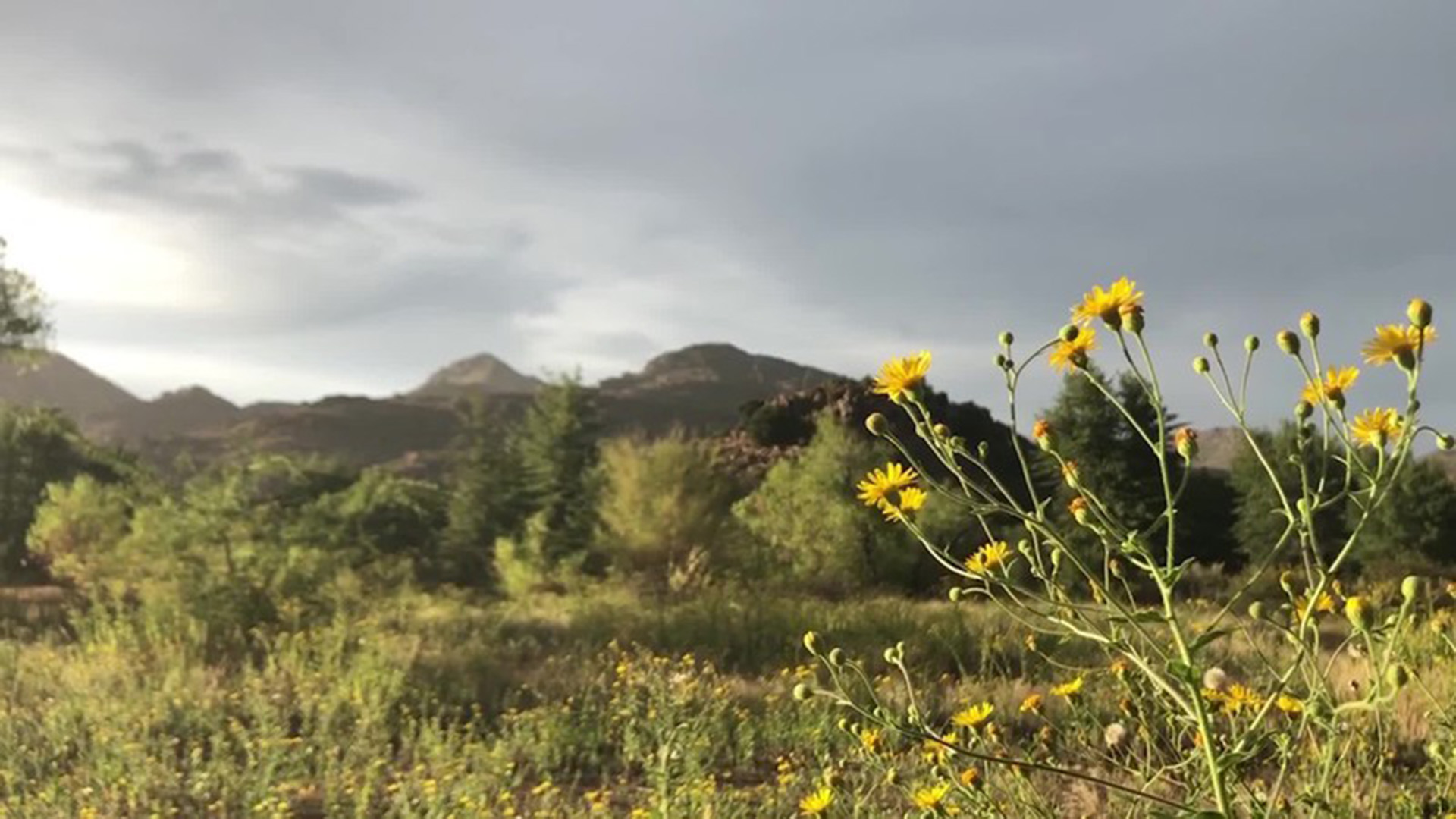 A scene from the Oak Flat campground, a site sacred to Apache peoples and the epicenter of lawsuits trying to block the development of a large copper mine.
A scene from the Oak Flat campground, a site sacred to Apache peoples and the epicenter of lawsuits trying to block the development of a large copper mine.
A federal court has issued a temporary injunction preventing the transfer of Oak Flat, a sacred site for Western Apache tribes, to a copper mining company.
“There is no close question in this matter,” U.S. District Judge Steven Logan wrote.
Logan’s ruling will temporarily keep the federal government from transferring the 2,422-acre parcel of land to Resolution Copper Mining until the nation’s high court decides whether to take up the case brought by the native nonprofit.
Native American groups quickly celebrated their win Friday afternoon, after arguing the land exchange violates the Religious Freedom Restoration Act (RFRA) and the First Amendment by destroying a site central to the Apaches’ religion.
“The federal government and Resolution Copper have put Oak Flat on death row—they are racing to destroy our spiritual lifeblood and erase our religious traditions forever,” Dr. Wendsler Nosie Sr., former Tribal Chairman of the San Carlos Apache Tribe, said of Apache Stronghold. “We are grateful the judge stopped this land grab in its tracks so that the Supreme Court has time to protect Oak Flat from destruction.”
In his 18-page ruling, Logan found that Apache Stronghold faces irreparable harm if the land is transferred and that the legal questions raised are serious enough to warrant Supreme Court scrutiny.
“Quite literally, in the eyes of many Western Apache people, Resolution Copper’s planned mining activity on the land will close off a portal to the Creator forever and completely devastate the Western Apaches’ spiritual lifeblood,” Logan wrote, echoing language from a prior ruling in the case.
The injunction halts all action on the land exchange, including the publication of a Final Environmental Impact Statement that would trigger and mandate the transfer. In the ruling, Logan said that preliminary injunctions are an “extraordinary remedy” that should be left for cases that are “novel” and “difficult.”
“But if this is not such a case, then what is?”
During Wednesday’s hearing, Resolution Copper emphasized its commitment to maintain public access to the Oak Flat Campground. But, to Logan, that promise was not enough.
“These assurances are insufficient,” the judge wrote. “Nothing about Resolution Copper’s broad ‘commitment’ to public access is legally binding.”
Logan acknowledged that even Resolution Copper’s legally required responsibility to keep access to the campground is contingent on whether it sees access as “practicable” and “consistent with health and safety requirements.” The judge added that the campground is only a “tiny portion of Oak Flat itself.”
The fight over Oak Flat began after Congress tucked the Southeast Arizona Land Exchange and Conservation Act into a national defense funding bill in 2014. The law requires the U.S. Forest Service to transfer Oak Flat to Resolution Copper in exchange for other parcels.
Apache Stronghold sued in 2021, but a federal appeals court ruled against the group in a deeply divided 6-5 decision last year. At the time, the court found that under existing precedent, the land transfer did not constitute a “substantial burden” under RFRA.
Last September, the nonprofit filed a petition asking the high court to take up the case. The Supreme Court has since relisted it 13 times.
Logan acknowledged that while mining the site might bring economic benefits, including copper production and job creation, those gains could still happen later. On the other hand, he wrote, Apache Stronghold risked permanently losing access to a religious site that has been used for generations.
If the land is transferred, it will no longer be subject to federal protections. The land would become private property, and Resolution Copper, a subsidiary of two foreign mining giants, would have the right to exclude tribal members from conducting ceremonies or accessing parts of the area.
The injunction will remain in place until the day after the Supreme Court either denies Apache Stronghold’s petition or, if granted, until the Court issues a final ruling in the case. A decision on whether the Court will hear the case could come as early as this summer.


By submitting your comments, you hereby give AZPM the right to post your comments and potentially use them in any other form of media operated by this institution.